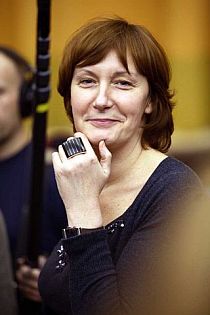


Baltic Sea Forum 2012/ 4

A kind of summing up after 5 intense days of Baltic Sea Forum in Riga Latvia, the16th edition. The reader should know that I have been part of the event from the very beginning, where it took place on the island of Bornholm as an integrated part ot the Baltic Film & TV Festival. So it is an insider’s personal reflections that you will get, words from one who have enjoyed to be a project selector, tutor and moderator 15 times… after the 10th edition I decided to stop but regretted and was accepted to make a comeback, to use a football term.
Simon Drewsen Holmberg, a founder of and for many years a driving organisational force behind the Forum through the Baltic Media Centre on Bornholm, now director of the Danish Cultural Institute in Riga, asked me and Mikael Opstrup from EDN, whether we still found it useful to set up a Forum as the current financial situation for support of creative documentaries is so much worse compared to when the Forum started 16 years ago…
Indeed, true it is that the broadcasters do not have the same possibilities today, and there was little money around the table at this Forum, BUT anyhow I would say that the Baltic Sea Forum is of great importance for filmmakers, the experienced as well of (especially I would state) the younger ones who get their projects tested and developed at the stage they are. There is a strong project development value connected to the Forum, some projects still do
profit financially from taking part and new eventual coming financial means are introduced – interactive docs, webdocs, vod’s etc. Several of the film projects have the Baltic Sea Forum as the first stop before going to other markets.
Many filmmakers came from Russia (see post below) to meet the EUropeans, they might leave Riga disappointed that noone puts money into their films but hopefully also with the knowledge that ”there is nothing wrong with my film project” even if it does not fit the requirements of Western public television! And hopefully also with the inspiration it was to meet colleagues and try to set up crossborder collaboration. A joy it was to see Estonian producer Marianna Kaat (Pit 8) (photo) work with a new Russian director Evdokia Moskvina, Latvian producer Uldis Cekulis set up a collaboration with extremely talented Ukranian team Darya Averchenko and Roman Bondarchuk, Polish producer Dorota Roszkowska work with Russian Olga Korotkaya, and to have Lithuanian Audrius Stonys help a Norwegian team pitch a film about ”The Man who Knew 75 Languages”. Sauerwein was his name and he wrote, in Lithuanian, the text of what is today considered to be the second anthem of Lithuania. Stonys knew the text by heart and set the tone of the pitch.
The panel reacted positively, and luckily also critically to what they heard and saw. There were new faces around the table from arte France, Britdoc and German rbb, but also veterans, who have been loyal to the Forum year after year: Jenny Westergaard from Finnish YLE, Hjalmar Palmgren from SVT’s excellent documentary slot K-Special, the always attentive and clever Marje Jurtshenko from ETV, Estonia, who is not afraid to go against what colleagues have said about a project, and equally attentive Russian Grigory Libergal, who is always right to the point in his analyses of the pitched projects. Just to mention some of the panelists.
Baltic Sea Forum is also seminars and film screenings. For the latter one could say that the Forum is in the phase of re-making the festival on Bornholm that stopped in 2001. With a broader geographical perspective and with great films like Patricio Guzman’s ”Nostalgia for the Light”. The film programme tours for the first time to other Latvian cities, the q&a with directors present is recorded and put online, in other words, a festival culture is being built up, which is even more important as the Arsenals festival in Riga, as I understand it, has stopped. At the screenings I attended the cinema K Suns was packed, starting with Finnish ”The Punk Syndrome” by Jukka Kärkkäinen and J P Passi. The band was there, went on stage to meet the audience, performed as they do in the film, great fun, positive energy, a fine opening of the film programme of 2012.
In other words a next step could be to establish an international documentary film festival in Riga, which has brought so many big names to the history of documentary.